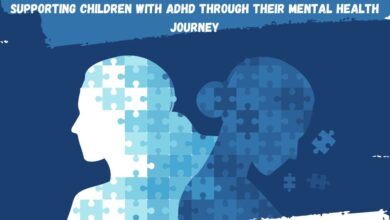The Importance Of Play-Based Learning In Early Childhood Centers

Play-based learning is crucial for the growth and development of young minds and is recognized worldwide for its benefits. This approach puts play at the center of learning, allowing children to explore and engage with their environment naturally and engagingly. It helps develop vital social skills, encourages creativity, and promotes critical thinking, making learning a joyful, lifelong process.
Early childhood centers, such as the early childhood centre Brookvale, are at the forefront of applying this educational method, making play-based learning the foundation of their teaching philosophy. This ensures that children receive an excellent start to their education, laying a solid foundation for their future learning and development.
Continue reading to discover how this approach can significantly benefit early learners.
The Benefits Of Play-Based Learning
Play-based learning is a cornerstone of early childhood education, offering many benefits beyond the classroom. Educators can tap into a child’s natural curiosity and enthusiasm for exploration by integrating play into the learning environment. This approach enriches the learning experience and fosters a foundational love for lifelong learning.
The following are key advantages of embracing play-based learning:
- Enhances cognitive development: Through play, children engage in activities that stimulate their brain development. This engagement helps sharpen their imagination, improve dexterity, and bolsters physical and mental agility. It’s a dynamic way to cultivate problem-solving skills and cognitive flexibility, which are critical for adapting to new challenges.
- Promotes social skills: Play-based settings encourage children to interact with their peers, facilitating the development of crucial social skills. This interaction teaches them to collaborate, share resources, negotiate roles, and navigate social norms. It’s an invaluable practice ground for building empathy, understanding, and respect for others’ perspectives.
- Encourages emotional growth: Play-based learning creates a safe and supportive environment where children can freely express themselves. It’s an effective channel for them to explore their feelings, understand emotional boundaries, and develop empathy. By engaging in role-play and storytelling, children learn to articulate their emotions and develop a more profound sense of self-awareness.
Play-based learning is a comprehensive approach that supports children’s intellectual, social, and emotional growth. It builds a solid foundation for their future academic success and personal development, preparing them to confidently and creatively face the world’s complexities.
Implementing Play-Based Learning

Integrating play-based learning into early childhood centers is a strategic approach that fosters a rich learning environment. This method supports children’s holistic development by blending educational objectives with their innate desire to play.
Here are the essential strategies for embedding play-based learning:
- Create an engaging environment: Designing spaces that spark curiosity and encourage exploration is vital. An engaging environment is rich with materials children can manipulate, explore, and use to construct their understanding of the world. This includes a variety of textures, colors, natural elements, and flexible spaces that adapt to different types of play and learning activities.
- Offer various play options: Diversity in play options caters to different learning styles and interests, ensuring every child finds a way to engage that resonates with them. This variety includes tactile activities like sand and water play for sensory experiences, constructive play with blocks and legos for problem-solving skills, and imaginative play in dress-up areas to foster creativity and storytelling abilities. Incorporating puzzles and games designed around numbers and patterns can make learning mathematics an enjoyable and integral part of play.
- Encourage child-led play: Allowing children to choose their play activities empowers them to take charge of their learning. This autonomy supports their decision-making skills, fosters independence, and encourages them to follow their interests. Educators play a supportive role, facilitating rather than directing, which promotes a child’s sense of agency and self-confidence.
These strategies foster a vibrant and inclusive learning space where all children benefit. Play-based learning helps children enhance critical thinking, teamwork, and creativity, laying the groundwork for continuous learning.
The Role Of Educators In Play-Based Learning
Educators play a critical role in the success of play-based learning within early childhood education. Their responsibilities go beyond traditional teaching methods, requiring a nuanced understanding of child development and a passion for fostering learning through play.
Below are the essential responsibilities of educators in play-based learning:
- Observation: Teachers carefully watch and listen to children as they play, noting their interests, interactions, and the skills they demonstrate. This ongoing assessment helps educators to understand each child’s developmental stage, learning style, and areas of interest. It forms the basis for planning activities that are both engaging and educational, tailored to the needs and curiosities of the children.
- Guidance: While the children lead play, educators play a vital role in extending and enriching this play. They do this by posing thoughtful questions, introducing new concepts, and gently steering play in directions that further learning objectives. This subtle guidance aims to deepen rather than direct the play experience, encouraging children to explore new ideas and solve problems creatively.
- Environment preparation: A thoughtfully arranged environment is vital to successful play-based learning. Educators design flexible spaces with open-ended materials that can be used in multiple ways by children. They ensure the environment is safe, welcoming, and rich with opportunities for exploration and discovery. Regular changes and additions keep the space exciting and responsive to children’s evolving interests.
Educators play a crucial and varied role in play-based learning. Observing, guiding, and creating a stimulating environment allow children to explore and learn joyfully and naturally. Their skills and commitment maximize the benefits of play-based learning, helping each child learn and flourish.
Conclusion
Play-based learning is crucial for early education, matching the natural tendencies of young learners and promoting cognitive, social, and emotional development. Educators play a pivotal role in applying play-based methods, preparing children to confidently and creatively handle learning and life’s challenges. Valuing and incorporating play in education ensures all children can achieve their full potential.





